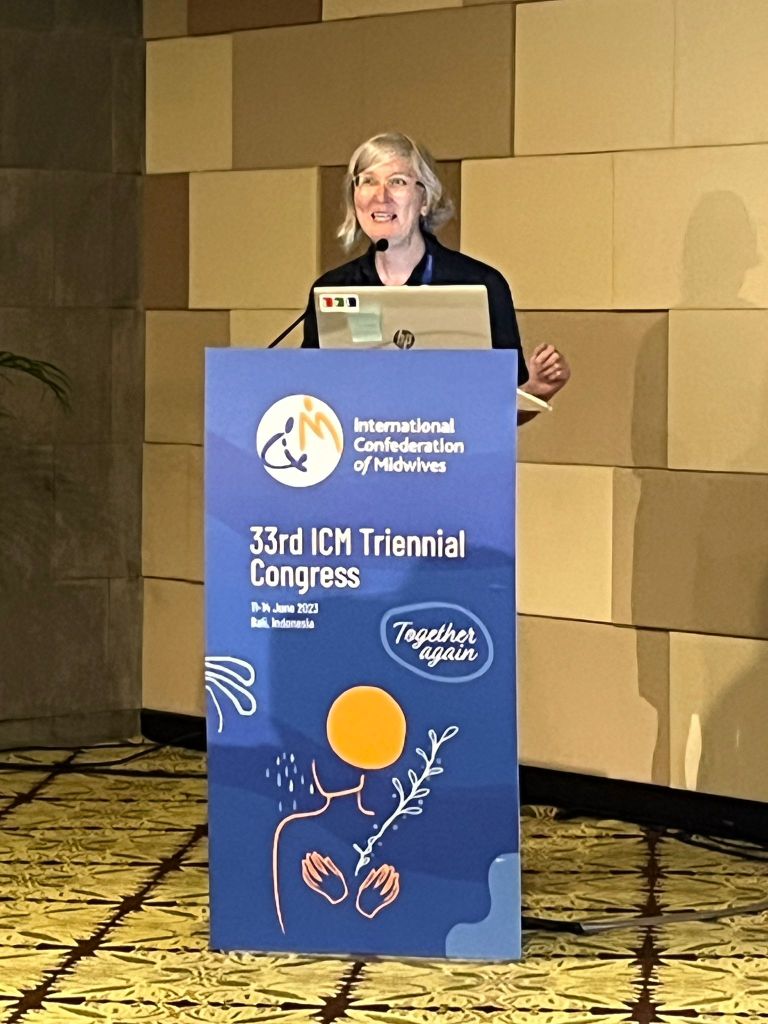Auf dem Kongress der International Confederation of Midwives in Bali, Indonesien im Juni 2023 wurden die Ergebnisse der Arbeit der Projektgruppe des DHVs zum Thema Regulierung und Selbstverwaltung ebenfalls vorgestellt.

Abstract
Authors: Michaela Michel-Schuldt, Hilke Schauland, Barbara Blomeier, Judith Otter, Denize
Krauspenhaar, Lea Beckmann, Jutta Eichenauer.
Introduction: In 2018, we received the mandate by the national assembly of the German
Midwives Association to work on a project raising the status of midwives
through regulation. For this purpose, we formed a group comprising of midwives
with experiences in the field. We used the ICM Regulation Toolkit and followed
the first three steps: we developed our capacity to understand midwifery
regulation, assessed the current status through the application of the gap
analysis tool and identified goals.
Discussion: Many areas are already regulated by midwives’ themselves but also by other
bodies including governmental structures or even health insurance companies.
Legislation exists which provides competence-based education that meets
international standards and continuous professional development. It includes a
scope of practice that allows midwives to practice autonomously and which
enables women to access midwife-led continuity of care. Compared to other
health professions however, midwives in Germany do not have an autonomous
regulatory body and a chief government midwife position is missing. A
professional register and relicensing system for midwives does not exist, and
code of conduct and ethical standards are not binding. Mechanisms for
complaints and discipline show severe gaps. Most women seek antenatal care by
obstetricians and the majority of births take place in obstetric-led settings. Often,
midwives are excluded from decision-making at all levels, including policy.
Application to midwifery practice, education or regulation/policy
The findings of the analysis will be presented to the delegates of the national
assembly of the German Midwives Association. According to the ICM regulation
toolkit, the next steps including the development of a strategy will follow.
Evidence if relevant: The use of the ICM gap analysis tool was useful to systematically assess the status of regulation of midwives in Germany.
Key message: The project group’s analysis shows that some areas in the field of midwifery
regulation do meet the ICM standards, some areas however, show severe gaps.
